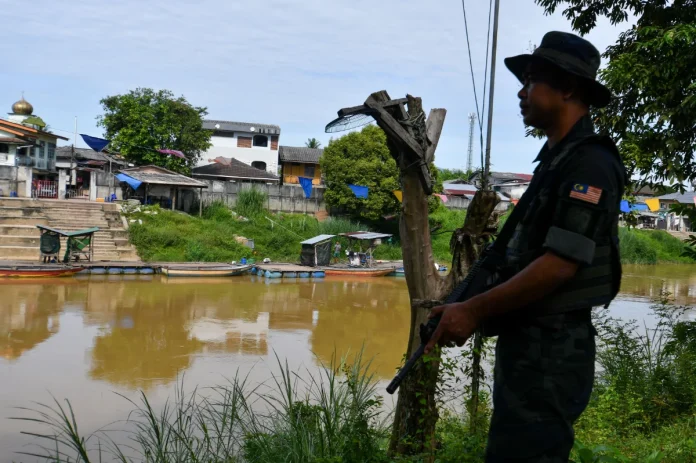Long-standing familiarity between border enforcement personnel and river communities along Sungai Golok has fostered a pattern of sympathy-driven tolerance that undermines security control
PETALING JAYA: Long-standing familiarity between border enforcement personnel and river communities along Sungai Golok has fostered a pattern of sympathy-driven tolerance that undermines security control, said Universiti Utara Malaysia PhD researcher in Strategic Studies ASP Amirul Abu Hassan.
“These communities are not strangers to the officers stationed there.
They share dialects, kinship networks and daily interactions.
Because of this familiarity, some officers tend to overlook what they consider ‘small’ livelihood-related crossings.
“But over time, that tolerance becomes routine and syndicates exploit that space,” Amirul told theSun.
He said the blurring of social relationships and enforcement responsibilities has created a culture in which informal cross-border movement is treated as normal, reducing the perceived seriousness of smuggling and weakening the deterrence effect of patrol presence.
“In some cases, officers adopt a tolerant or passive stance towards small-scale smuggling activities, either out of sympathy for local residents or due to financial incentives offered by the parties involved.
“Additionally, the way houses are positioned along certain stretches of the Sungai Golok riverbank, with homes sitting (at the water’s edge), creates an advantage for smuggling.
“Goods can be moved using small boats tied to ropes and quietly pulled across between the Malaysian and Thai sides.”
Amirul said this situation is reinforced by the sociocultural and family links between residents of Rantau Panjang, Kelantan and Sungai Kolok in Thailand, who share Patani-Malay heritage and interdependent economic activity.
“Residents on both sides of the river share Patani-Malay heritage, speak the Kelantan-Patani dialect and maintain cross-border family ties while depending on one another for economic activities such as trade, agriculture and services.
“Because of this demographic and sociocultural reality, Sungai Golok is a particularly fragile border zone, where social and humanitarian considerations often overstep security enforcement.”
He said this environment has allowed informal river crossings to operate for decades.
Initially used for family visits and small-scale trade, these routes have gradually evolved into structured smuggling networks, ranging from individuals acting as low-risk runners to organised syndicates transporting drugs, firearms and contraband.
“When the crossing looks like ordinary neighbourly movement, enforcement becomes harder to justify and detect,” he said.
Amirul added that strengthening border control will therefore require more than physical infrastructure or seasonal enforcement drives.
He also supported the ongoing dismantling of illegal jetties along the riverbank as a necessary disruptive measure.










